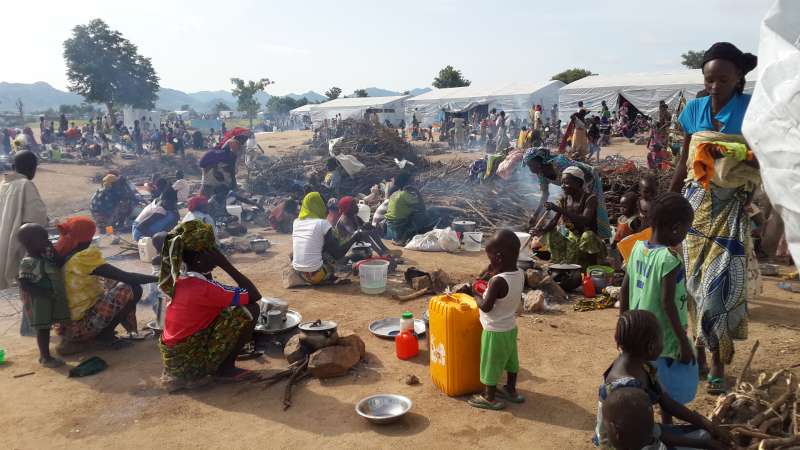By Neville Mesumbe
The World Food Programme, WFF, says it will halt cash assistance to refugees in Cameroon by August 2020.
According to WFP, the decision is largely influenced by a funding gap emanating from the outbreak of COVID-19 pandemic.
In line with this, the WFP and the United Nations High Commissioner for Refugees, UNHCR, have warned that refugees in Cameroon and those across Africa are likely to experience severe hunger and malnutrition as a result of underfunding, conflict, disasters, supply chain challenges, rising food prices and loss of income due to COVID-19.
UNHCR and WPF said food prices are rising in many parts of the Africa continent and this, they said, poses a devastating threat to millions of refugees, particularly those who were already living hand-to-mouth on daily wages.
Stressing on the issue, the UN High Commissioner for Refugees, Filippo Grandi, said: “Millions of refugees throughout Africa are currently reliant on regular aid to meet their food needs… Around half are children, who may develop life-long difficulties if deprived of food at vital stages in their development.”
The organisations further reveal that there is a need for drastic measures to address the situation.
“Unless urgent action is taken to address the situation, levels of acute malnutrition, stunting and anaemia are expected to rise. In refugee camps in Ethiopia, 62 percent of children are experiencing critical levels of anaemia,” they said.
According to WFP Executive Director, David Beasley, this is the time that refugees across Africa highly need humanitarian support.
“In the best of times, refugees live in cramped conditions; struggle to meet their basic needs and often have no option but to rely on outside assistance for their survival. Now, more than ever, they need our life-saving support,” the Director said.
The joint statement further discloses that refugee populations who were previously able to feed and fend for themselves, including many living in urban areas and those working in the informal economy, are also facing significant challenges.
“Large numbers have lost their only source of income as work possibilities disappeared due to COVID-19 prevention measures. Most are not covered by social protection schemes, leaving many families destitute and dependent on humanitarian assistance. In South Africa, many refugees are in danger of being evicted and have approached UNHCR helplines in desperate need of food and support,” the joint statement read.
The two organisations further observed that COVID-19 measures have complicated the whole issue.
“In the mostly landlocked Sahel, COVID-19 prevention measures such as border closures and movement restrictions limit capacity to transport products in a region where escalating insecurity, violence and conflict – compounded by the impact of climate change and poverty – have disrupted food security and livelihoods for millions of people. Assistance for extremely vulnerable groups, including more than 1.2 million refugees in the region, needs to be sustained”
Across East Africa, the organisations stated that unstandardized health measures at multiple borders have created congestion, delaying vital aid and trade flows. They added that a lack of recognition of test results in neighbouring countries and the requirement to wait for test results have caused long queues and delays at custom points.
As a result of these challenges, UNHCR and WPF say many refugees are resorting to negative coping mechanisms, such as skipping meals or reducing meal portions.
“More than 80 percent of refugees in South Sudan are estimated to be resorting to such measures. In some cases, refugees are resorting to begging, transactional sex, or early or forced marriages to be able to afford food.”
UNHCR and WFP are urging international donors to provide funds to take care of the poor. They have equally urged African governments to ensure refugees and displaced populations are included in social safety nets and COVID-19 response plans, in line with commitments to the Global Compact on Refugees, to ensure they can access food and emergency cash assistance.

1 comment
Thanks for sharing. I read many of your blog posts, cool, your blog is very good.